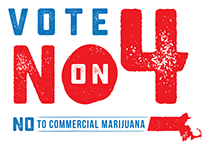In Light Of New Study On Child Marijuana Poisoning, Marijuana Industry Urged To Answer Why They Specifically Authorized Marijuana Edibles In Ballot Question
NoOn4Lyric2016 2016-09-28T19:14:33+00:00New Study Shows Edibles, Commercialized Marijuana Have Led To 150% Increase In Accidental Marijuana Exposure For Young Children, Toddlers In Colorado
BOSTON - A new study published Monday has shown that reports of accidental marijuana poisoning by young children and toddlers has risen by 150% since commercial marijuana was legalized in Colorado in 2014. Half of the child poisoning cases involved the accidental ingestion of marijuana edible products (including brownies, cookies and candies) that are being marketed and sold in Colorado. The Campaign for a Safe and Healthy Massachusetts urged the marijuana industry to answer why they would specifically authorize these products in Massachusetts under their 2016 ballot proposal.
The study, conducted by the JAMA Pediatrics Journal, was released Monday and studied the number of marijuana poison-control cases for children aged 0-9, and showed the 150% increase since 2014. The average stay in the hospital for the children was about 11 hours. Marijuana Edibles now account for approximately 50% of marijuana product sales in Colorado since legalization, and that number is growing.
Under the Massachusetts ballot question, written by the Marijuana Industry, edible pot products would be specifically authorized under the law. Edible products are such an essential part of the Massachusetts ballot question that the state’s Supreme Judicial Court, in a rare ruling, ordered that the ballot question summary be re-written to include reference to edibles. In Colorado, the marijuana industry has vigorously fought against marketing restrictions once recreational marijuana was legalized.
“It is becoming increasingly clear that the pot edibles market is dangerous for our kids, and a huge part of the profit model for the marijuana industry,” Safe and Healthy Massachusetts campaign manager Nick Bayer said. “The marijuana industry chose to specifically authorize these dangerous edible products under their proposed law. The marijuana industry put their profits over the interests of Massachusetts families, and we believe the edibles issue alone is a reason to reject this ballot question in Massachusetts.”
Among the facts about marijuana edibles include:
- There is no limit on the potency of edible products in Colorado, nor are limits written into the proposed law in Massachusetts.
- Edible products have been known to have THC levels reaching as high as 95%. That compares to the THC in current marijuana plants that average 17-18% THC, and marijuana THC levels of 3-4% that existed back in the 1980s.
- Marijuana infused products such as gummy bears, candy bars, cookies, and “cannabis cola” are often indistinguishable from traditional products and attractive to children.
- Doctors at Children’s Hospital Denver reported that, after legalization, the ER began treating one to two kids a month for accidental marijuana ingestion, mostly in the form of edibles. Prior to legalization, they reported none.
- For example, in 2014, a two-year old girl from Longmont, Colorado was sent to the hospital after accidentally eating a marijuana cookie she found in front of her apartment building.
The Campaign for a Safe and Healthy Massachusetts represents a growing coalition of health care and community leaders, anti-addiction advocates, educators, business groups, first responders, and families who are opposing this proposed legalization of the commercial marijuana industry in Massachusetts.
Among the groups that have already come out in opposition to this initiative include: the Massachusetts Hospital Association, the Massachusetts Medical Society, the Massachusetts Municipal Association, the Associated Industries of Massachusetts, the Conference of Boston Teaching Hospitals, the Retailers Association of Massachusetts, Association of School Superintendents, the Association for Behavioral Healthcare, the National Association of Mental Illness (Massachusetts Chapter), the Massachusetts Chiefs of Police, the Massachusetts Sheriffs Association, and all Massachusetts District Attorneys.

